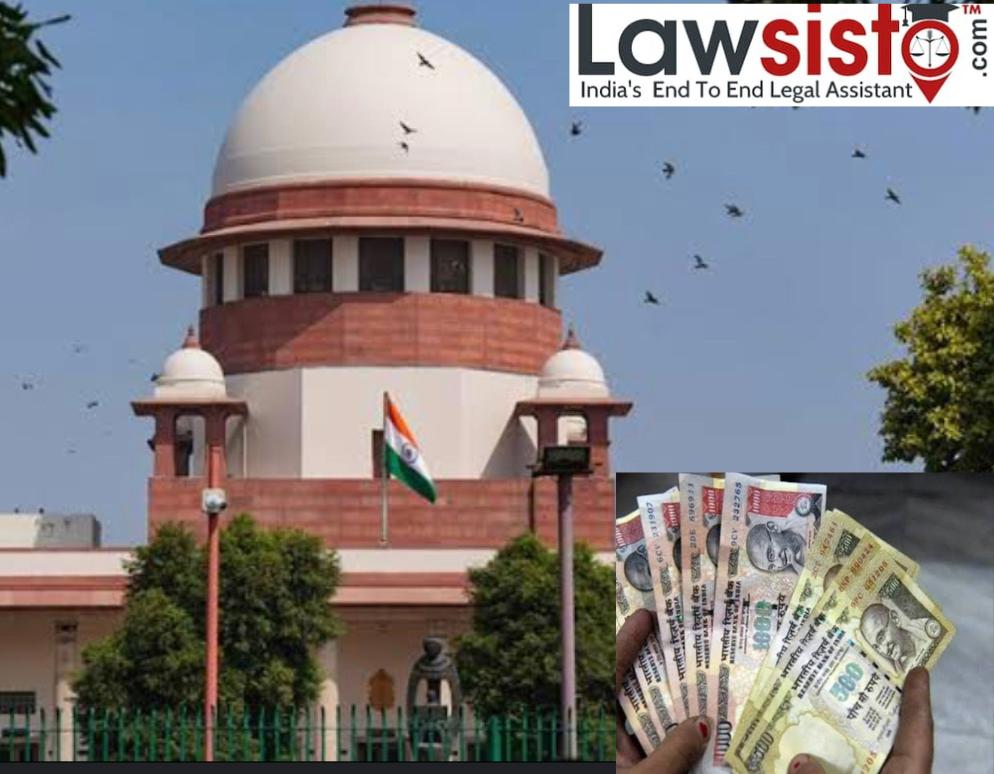Latest News
The Supreme Court rejects appeals against the 2016 demonetisation

A petition contesting the Central government's decision to demonetise 1,000 and 500 rupee notes in 2016 was dismissed by a five-judge Supreme Court bench on Monday. The judgement on many appeals against the Central government's 2016 demonetisation programme was given by the Constitution Bench of Justices S Abdul Nazeer, BR Gavai, AS Bopanna, V Ramasubramanian, and BV Nagarathna.
"It has been recognised that there needs to be a great deal of restraint before interfering in subjects of economic significance...we cannot displace such views with the judicial one," Justice Gavai said in delivering the majority opinion. He further said, "The Center and the RBI held discussions for a total of six months. We maintain that there was a justifiable connection for bringing such a measure, and we maintain that the theory of proportionality did not apply to demonetisation." Justice Gavai concluded that the RBI lacked the authority to implement demonetisation. "As a result, the Center's authority cannot be construed as being limited to a single series of bank notes. It applies to all series of currencies. According to Section 26(2) of the RBI Act, there is not an excessive amount of delegation, hence it cannot be invalidated. The proportionality test is passed, and the notification is valid. The time frame for the exchange of notes cannot be deemed unreasonable."
However, Justice Nagarathna disagreed with the answers to each of the questions and issued a dissenting ruling. "I've said before that the RBI is the backbone of the Indian economy. I have mentioned examples of previous global demonetisation exercises. Examining Section 26(2) would not imply sitting over the merits of demonetisation, and as such, it is fully within the Lakshman Rekha as drawn by this Court. The court is not to seat over the merits of economic or financial decisions." She continued to argue, "A much more significant problem affecting citizens than demonetisation at the behest of the Central government. Since the Center has such broad powers, in my opinion, plenary legislation must be used to accomplish the same thing." “A democracy cannot flourish without Parliament, she continued, "and Parliament cannot be kept out of such crucial issues." Significantly, she maintained, "The clause in Section 26(2) [of the RBI Act] itself contains an inherent contradiction. It can be seen from the documents provided by the RBI that the Central government recommended demonetization. This demonstrates that the RBI did not exercise independent judgement."
The Court had framed eleven legal questions in response to the collection of submissions opposing the action. The petitioners raised the following major arguments more than six years after the move:
- The Reserve Bank of India (RBI) Act's Section 26(2), which enables the government to declare all series of a specific denomination to no longer be a legal currency, is excessively broad;
- The recommendation failed to take into account pertinent factors; The decision-making process was seriously defective;
- The demonetization's declared goals were not met;
- The action does not pass the proportionality requirement;
- A declaratory remedy may be moulded and granted by the Court.
Senior Counsel Shyam Divan argued on behalf of the petitioners that the Central Board of the RBI's suggestion was a need before the Central government could decide to implement demonetisation. He continued by saying that the Center had a responsibility to uphold the promise made in bank notes to pay bearers a certain amount in both writ and civil courts.
Senior Advocate Jaideep Gupta had stated that the timelines would have been worthless if every person had made specific demands and requested a writ of mandamus, speaking on behalf of the RBI. "Even if the Prime Minister had declared that additional time would be offered later rather than 50 days, there is still no evidence that promissory estoppel would have applied. Beyond that time, we made no guarantees."
Attorney General (AG) for India R Venkataramani, on behalf of the Central government, emphasised that the distinctions created for different categories' grace periods were not made at random. Regarding a petitioner's claim that their right to dignity was violated, the AG had stated, "The dignity factor ought to be kept for more priceless cases. There is no issue of dignity when an NRI travels abroad for financial gain. Privacy and other aspects of dignity."
For the Supreme Court to decide whether the 2016 demonetisation process was legally valid, senior advocate P Chidambaram has urged the Central government to release records detailing how the decision was made. On the last day of the hearing, the Court asked for some confidential documents related to the ruling from the Central government in a sealed cover.



































































































